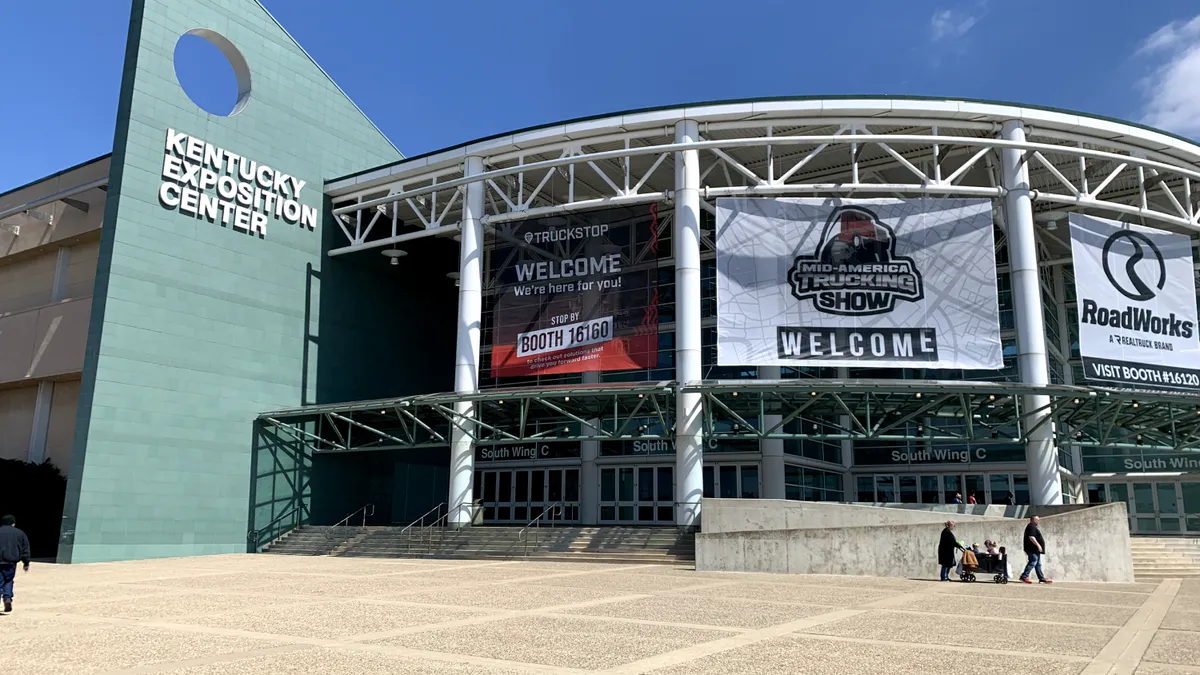A long-distance truckload Producer Price Index inched its way into positive territory in August, reversing a nearly two-year-long trend and providing another sign that change from a prolonged freight downcycle may be in store.
The year-over-year percent change for the Bureau of Labor Statistics’ PPI eased its negative territory last month, regaining an annual growth status that was last seen in December 2022.
PPI for TL improves
The measure is of average change in selling prices over time from the sellers’ perspective, as opposed to the consumer’s, the BLS notes.
While the truckload freight recession and downward pressure on pricing has shown signs of an end, analysts expressed mixed reactions on what the changes signal.
“Spot rates have trended north of 5% positive y/y,” DAT Principal Analyst Dean Croke wrote in an email to Trucking Dive. “Contract rates don't seem to be that far behind as they approach parity with the prior year, which aligns with the slight increase in the PPI y/y.”
Spot rates are a leading indicator of contract rates, and the shift has led some industry observers to conclude that the freight market cycle is shifting. Additionally, consistent volumes and dry van and reefer spot rates at last reversing a YoY negative trend have also helped signal a transformation, per DAT.
“The early obituary of the last spot market cycle has it running from June 2020 to June 2024 which is 49 months,” DAT Chief of Analytics Ken Adamo wrote on LinkedIn earlier this month. “That included 22 months of (rather extreme) expansion and 27 months of contraction, which has felt tough over the last year.”
Extreme highs and lows seen in recent years seem to be fading, and normal seasonality appears to be returning with rates seeming to stay stable, Werner Enterprises Chairman and CEO Derek Leathers said Thursday at Morgan Stanley’s Laguna conference.
But Leathers said it’s a little early to label the change as a full inflection.
Additionally, demand is lacking, and dry van spot rates have given up all their gains in June, Michigan State University Professor Jason Miller said in an Friday email to Trucking Dive.
“Given the large premium being fetched by broker buy contract prices, there is limited reason to expect the dry van TL market to improve substantially until we see a sustained increase in demand,” he wrote.













